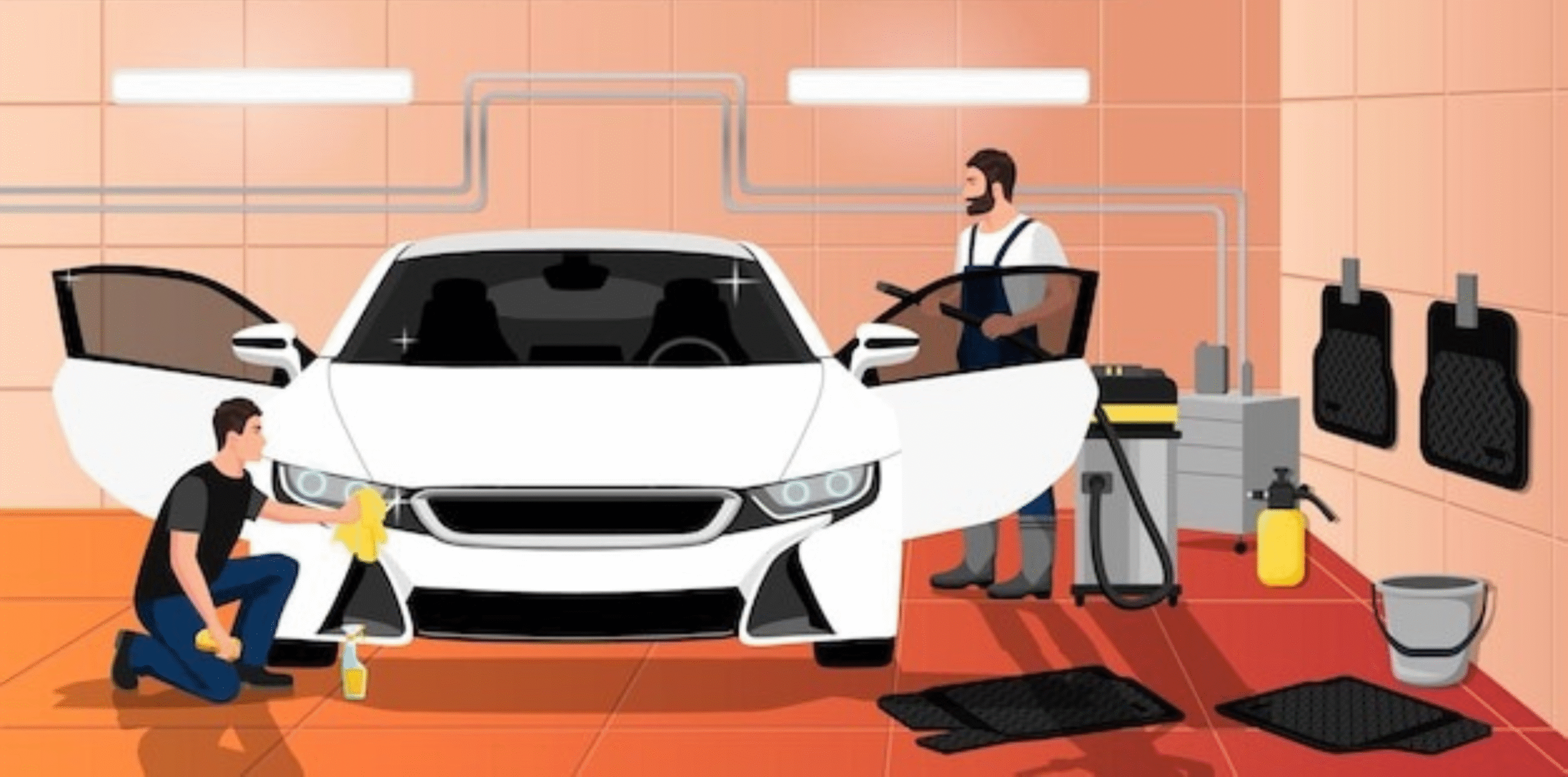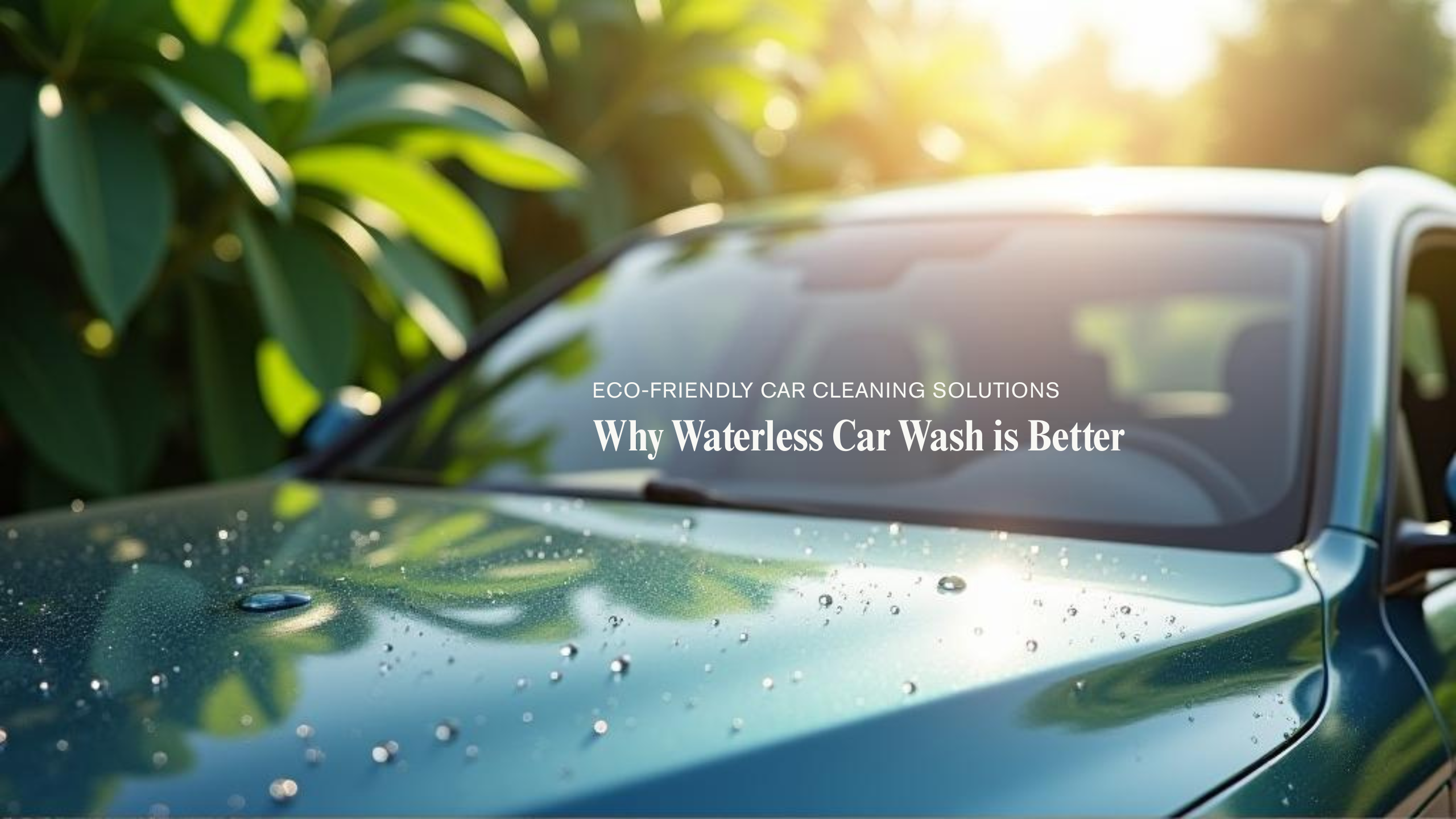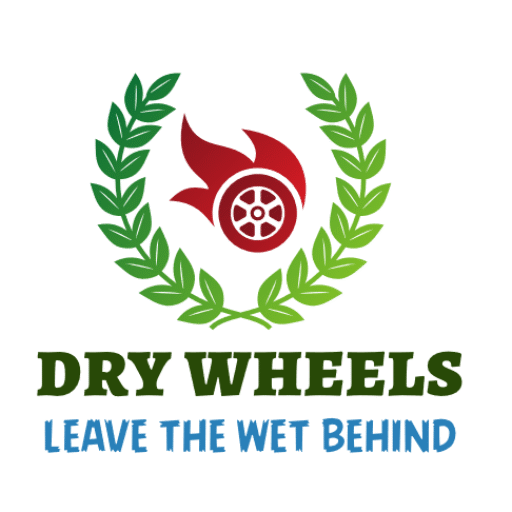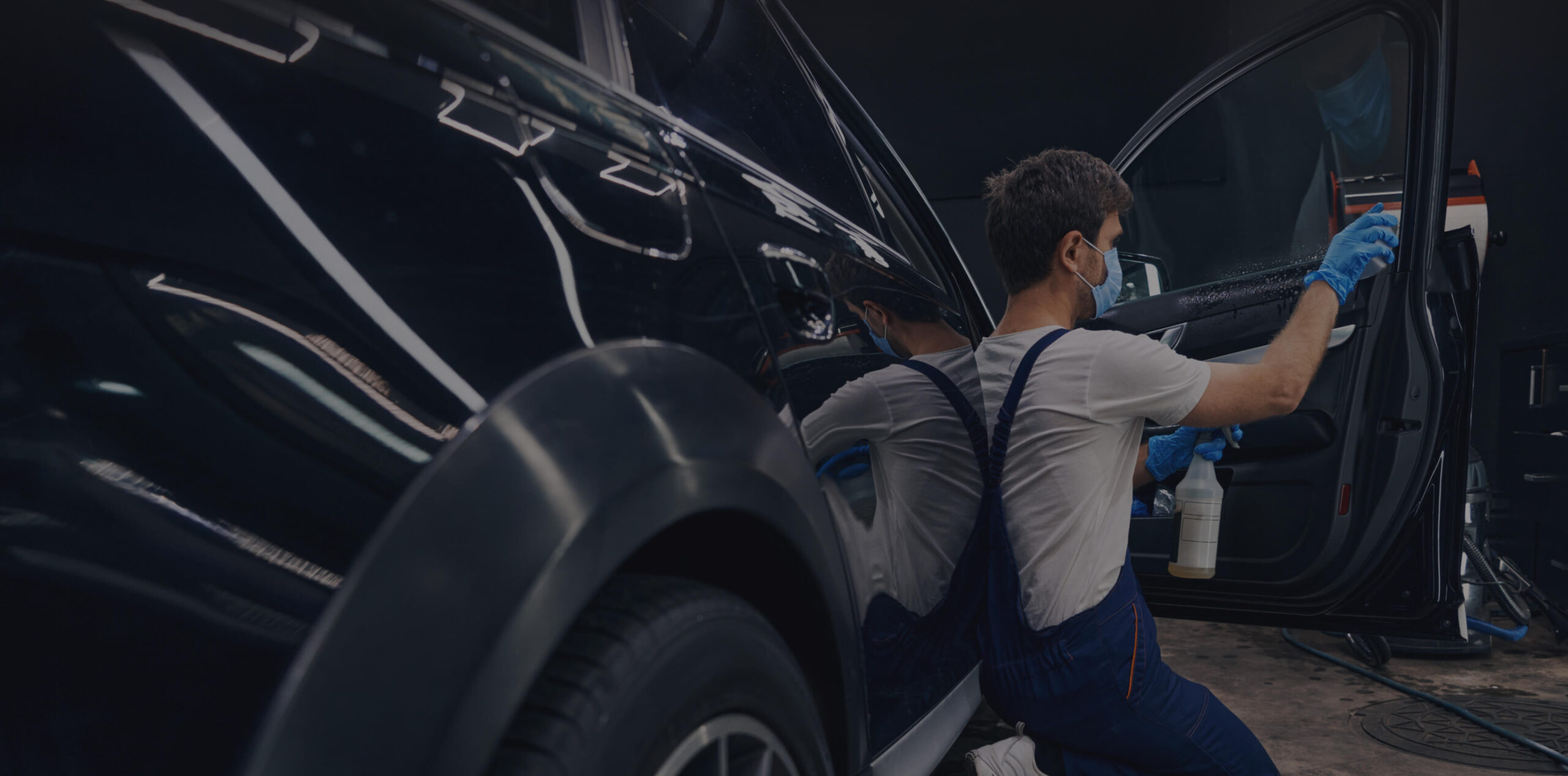
- By dry_admin
- Posted on
- 0 Comments
Which Is Better, In Traditional Car Wash Or a Waterless Car Wash?
Keeping your car clean is essential for maintaining its appearance and protecting its value, but with growing environmental concerns and busy lifestyles, many car owners are questioning whether traditional car washing methods are still the best option. The debate between waterless car wash solutions and traditional washing has gained momentum as innovative eco-friendly car wash solutions continue to evolve.
If you’re wondering whether to stick with your regular washing routine or switch to waterless car cleaning products, this comprehensive comparison will help you understand the pros, cons, and practical considerations of each method. We’ll explore everything from environmental impact and cost-effectiveness to cleaning results and convenience, helping you make an informed decision that suits your specific needs.
Why Waterless Car Wash is better than Traditional Car Wash
Waterless car washes are better for the environment, convenience, and speed, while traditional washes are better for very dirty cars and can be more cost-effective in the long run for high-volume businesses. Waterless washes are ideal for maintaining a car’s shine, conserving water, and offer a high-gloss finish and protection, but require proper technique to prevent scratches. Traditional washes use significant water and energy, and their abrasive brushes can damage paint, but are effective at deep cleaning heavily soiled vehicles.
Waterless car washes are better than traditional ones because they conserve a significant amount of water, produce no harmful chemical runoff, reduce the carbon footprint, and are more convenient and time-saving. Waterless washes use special lubricants that encapsulate dirt, allowing it to be wiped away without scratching, and often contain waxes that leave a protective, high-gloss finish. This combination of environmental benefits, enhanced protection, and practical advantages makes waterless car washes a superior choice.

Which is better, Traditional or Waterless car wash
Neither a traditional nor a waterless car wash is universally better; a waterless wash is superior for light dust and environmental concerns, offering water savings and convenience, while a traditional wash is better for heavy dirt, debris, and thorough cleaning needs, providing a deeper clean and options for full-service interior cleaning. The best choice depends on the car’s condition and your priorities for sustainability, time, and cleaning depth.
Feature |
Waterless Wash |
Traditional Wash |
| Water Usage | Minimal to none | Significant water waste |
| Time | Faster and more efficient | Can be time-consuming |
| Convenience | Can be done anywhere | Requires a designated area with a water source |
| Paint Safety | Safer; lifts and traps dirt to prevent scratches | Can cause scratches from abrasive brushes or dirt being ground into the paint |
| Finish | High-gloss with potential wax protection | Depends on product, can leave watermarks |
| Eco-Friendliness | Eco-friendly and water-saving | Can be wasteful |
| Cost | Cost-effective with single product | Requires multiple products and equipment |
Traditional Car Wash: Advantages and Disadvantages
Pros (Advantages) of Traditional Car Washes
- Deep Cleaning Power: Traditional washes excel at removing heavy mud, road salt, and stubborn contaminants. The high-pressure water effectively rinses away loose debris before scrubbing begins.
- Familiar and Accessible: Car wash facilities are widely available, and most people are comfortable with the traditional washing process. No learning curve is required.
- Tackles Tough Jobs: For extremely dirty vehicles—like those used off-road or in construction environments—water-based washing provides the intensive cleaning power needed.
- Undercarriage Cleaning: Many automated car washes offer undercarriage spray options that help prevent rust by removing salt and corrosive materials from hard-to-reach areas.
Cons (Disadvantages) of Traditional Car Washes
- Water Waste: Traditional car washes consume 40-100 gallons of water per vehicle. In drought-prone areas, this raises serious environmental concerns.
- Chemical Runoff: Soaps, degreasers, and contaminants washed off vehicles enter storm drains, potentially polluting local waterways and harming aquatic ecosystems.
- Time Consuming: Between driving to the facility, waiting in line, and the actual wash time, traditional methods can take 30 minutes to over an hour.
- Higher Costs: Professional car washes typically cost $10-30 per visit, adding up to hundreds of dollars annually for regular maintenance.
- Potential Paint Damage: Automated brush systems can cause swirl marks and fine scratches, especially if brushes aren’t properly maintained or if dirt on previous vehicles remains in the system.
- Weather Dependent: Cold temperatures and freezing conditions make outdoor washing impractical or impossible in many regions during winter months.
Waterless Car Wash: Advantages and Disadvantage
Pros (Advantages) of Waterless Car Washes
- Environmental Sustainability: Waterless car cleaning products eliminate water waste, making them truly eco-friendly car wash solutions. This is especially valuable in water-scarce regions.
- Convenience and Portability: You can clean your car anywhere—at home, in a parking garage, or even at the office. No special equipment, hoses, or drainage systems required.
- Time Efficient: A complete waterless wash typically takes 15-25 minutes, significantly faster than traditional methods when you factor in travel time.
- Cost Effective: After the initial investment in quality waterless car cleaning products, each wash costs just pennies. A single bottle can last for dozens of applications.
- Paint Protection: The best waterless car cleaning products contain waxes and sealants that leave a protective coating, enhancing shine and providing UV protection between washes.
- No Swirl Marks: When used correctly with clean microfiber towels, waterless products minimize the risk of scratches and swirl marks compared to automated brushes.
- Year-Round Solution: Waterless washing works in any season, including winter when traditional outdoor washing isn’t feasible.
Cons (Disadvantages) of Waterless Car Washes
- Not Ideal for Heavy Dirt: Waterless products work best for light to moderate dust and dirt. Extremely muddy vehicles should be pre-rinsed or cleaned traditionally first.
- Requires Proper Technique: To avoid scratching, you must use the correct application method, quality microfiber towels, and sufficient product. There’s a learning curve for beginners.
- Initial Investment: Quality eco-friendly waterless car wash products may seem expensive upfront, though they prove cost-effective over time.
- Multiple Towels Needed: You’ll need several clean microfiber towels per wash to avoid dragging dirt across the paint surface.
Which Car Wash Method is Right for You? (Traditional Vs Waterless)
Choose a waterless car wash if you want something quick, easy, and water-saving — perfect for apartments or places with limited water. Just make sure the product is eco-friendly to protect your car’s paint and the environment. Go for a traditional car wash when you have a hose, more time, or need a deep clean. However, remember it uses more water and can have a bigger impact on the environment.
Conclusion: Waterless Car Wash Wins for Regular Maintenance
While traditional car washes still have their place for heavily soiled vehicles, waterless car cleaning products offer a superior solution for regular maintenance. They’re more environmentally sustainable, significantly more cost-effective, incredibly convenient, and provide excellent protection for your vehicle’s finish.
The evidence is clear: for most car owners, most of the time, waterless is the better choice. As eco-friendly car wash solutions continue to improve, the advantages of going waterless become even more compelling.
Experience the convenience, cost savings, and environmental benefits of waterless car care for yourself. Explore our selection of premium waterless car cleaning products designed to keep your vehicle spotless without wasting a single drop of water.
Shop Best Waterless Car Cleaning Products Now and join thousands of car owners who’ve discovered a better, greener way to maintain their vehicles.
Making the switch to eco-friendly waterless car wash products isn’t just good for your car—it’s good for your wallet and the planet too.

